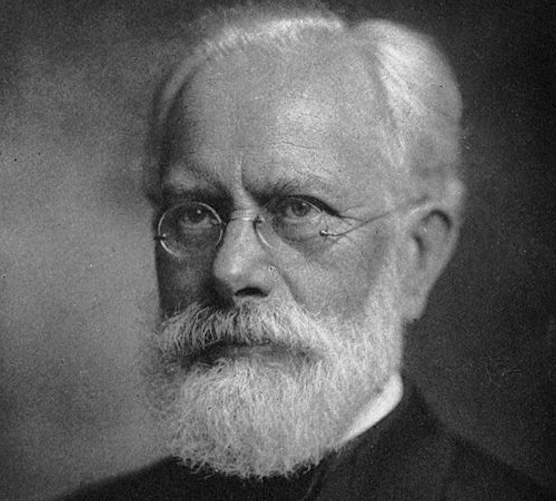Montréal (Special to Informed Comment; Feature) – Antisemitism is making the headlines. The Israeli Prime Minister describes as antisemitic the accusation that Israel is committing genocide in Gaza, and even American students who are calling for a ceasefire. What Israel is doing does in fact provoke antisemitic acts against synagogues, Jewish schools and even individual Jews. It is therefore important to understand what antisemitism is, what it is not, and how it can be distinguished from anti-Zionism.
Although anti-Jewish acts in Europe date back more than a thousand years, since the 19th century the term ‘antisemitism’ has been used to describe a hatred of Jews as a race, a concept that was instrumental in the expansion of colonialism. Racism was then considered legitimate, and even scientific. It asserted the inferiority of all Jews, Africans, Asians and others. This racism led to the massacres of millions of people in the Belgian Congo at the turn of the 20th century, the genocides that Germany committed at the same time in Southwest Africa (Namibia today), and then, barely thirty years later, in Europe, exterminating millions of Jews, Slavs, Roma and other ‘sub-humans’. antisemitism is therefore a form of racism.
Antizionism, on the other hand, is a rejection of Zionism, a political movement that emerged in Europe towards the end of the 19th century. Its founder, Theodor Herzl (1860-1904), was concerned about antisemitism and aimed to create Der Judenstaat, a state for the Jews. Zionism, which emerged at a time when ethnic nationalism and the right of peoples to self-determination were in full swing (Greece, Germany, Italy, etc.), asserted that the Jews constituted a people or a race apart who, never being able to integrate into the European society, needed a state for themselves.
The movement encouraged colonisation of Palestine and set up institutions such as the Jewish Colonial Trust (1899) and the Palestine Jewish Colonisation Association (1924). This settlement campaign, which created a separate economy and society under the British mandate, marginalised and even sought to replace the local population. It provoked resistance that would have arisen in the same way had the Palestinians been colonised and mistreated by the French or the Chinese. Opposition to Israel and Zionism, its founding ideology, is therefore political in origin.
From the outset, Zionism was a revolt against traditional (rabbinic) Judaism, which evolved around the world for nearly two thousand years. The new movement divided the Jews and fomented opposition, both religious and political. Moreover, it persists to this day. Ultra-Orthodox Jews can be seen at anti-Israel demonstrations alongside progressive activists from Jewish Voice for Peace or Independent Jewish Voices. One need only recall the Jewish demonstrations last November at the Statue of Liberty in New York calling for freedom for the Palestinians.
It follows that Zionism, like all nationalism, divides the group in whose name it claims to act. Jews opposed to Zionism is as normal a phenomenon as Quebecers or Catalonians opposed to political independence. Many Jews welcomed the establishment of the State of Israel in 1948, others denounced it. Today, it is the tragedy of the Palestinians that makes this division among Jews even deeper.

Kaufmann Kohler, d. 1926, rabbi, president of Hebrew Union College, Cincinnati, promoter of Reform Judaism, and prominent anti-Zionist. He co-authored the 1885 Pittsburgh Platform that proclaimed, “We recognize, in the modern era of universal culture of heart and intellect, the approaching of the realization of Israel s great Messianic hope for the establishment of the kingdom of truth, justice, and peace among all men. We consider ourselves no longer a nation, but a religious community, and therefore expect neither a return to Palestine, nor a sacrificial worship under the sons of Aaron, nor the restoration of any of the laws concerning the Jewish state.” Photo public domain.
What encourages antisemitism is the conflation of Jews with Israel, of Judaism with Zionism. This is regularly done by Israel and pro-Israel Jewish and Christian organisations. Israel promotes this association by declaring itself ‘The State of the Jewish People’, even though half the Jews do not live there, and more and more young Jews reject it. Moreover, Israel’s allies around the world use this amalgam to stifle criticism of Israel by labelling it antisemitic.
Those who declare their solidarity with Israel as Jews reinforce this amalgam and, no doubt in spite of themselves, fan the flames of antisemitism. It is true that Israel has become central to the identity of many Jews, who mistake their political choice – to support a state in West Asia – for a commitment inherent in Judaism (see the recent film Israelism). But it is essential to avoid the trap of racist generalisations by associating all Jews with Zionists, particularly since the vast majority of Zionists nowadays are Evangelical Christians.
—
NB A French version of this essay appeared in La Presse.


 © 2026 All Rights Reserved
© 2026 All Rights Reserved